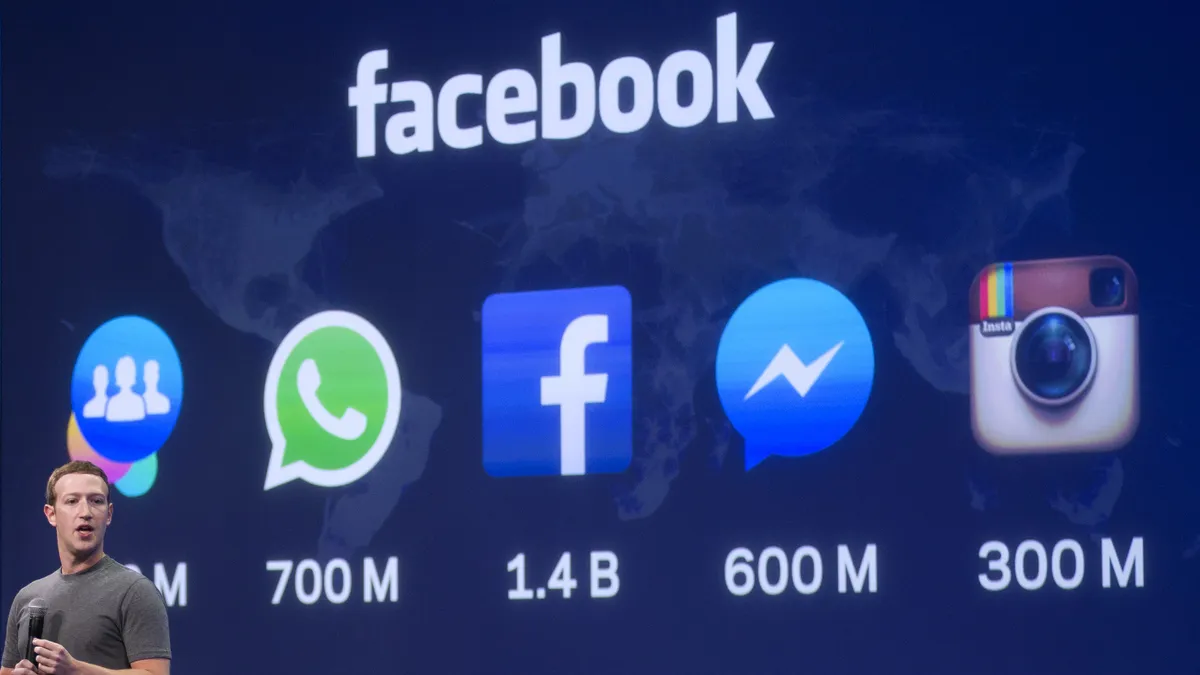Dive Brief:
- The ACLU has filed charges with the U.S. Equal Employment Opportunity Commission (EEOC) alleging that Facebook and 10 other employers are unlawfully discriminating on the basis of gender by targeting their job ads on Facebook to men, excluding all women and non-binary users from seeing the ads, the organization announced Sept. 18.
- For example, when viewers clicked on "Why am I seeing this ad?" after seeing a post about jobs assembling and delivering furniture, they were told that the employer wanted to reach men 18 to 50 who live in or were recently near Fort Worth, Texas, according to The New York Times.
- "The internet did not erase our civil rights laws," said Peter Romer-Friedman, an attorney at Outten & Golden, in the ACLU announcement. "The last time I checked, you don’t have to be a man to be a truck driver or a police officer. But Facebook and employers are acting like it’s the 1950s, before federal employment law banned sex discrimination." The list of employers facing claims includes the Greensboro, North Carolina, police department, Renewal by Andersen and JK Moving Services.
Dive Insight:
Facebook previously came under fire for allegedly enabling age discrimination in employment in a similar manner. It changed some of its policies last month, removing ad targeting options for race, religion and more, but did not remove age.
Regardless of how this plays out for Facebook, employers must remember that they're responsible for their own compliance with employment nondiscrimination laws. And employers can run afoul of the law even without explicitly excluding protected groups, experts say. Job postings that include words like "energetic" or "digital native" can signal that older workers shouldn't apply, for example.
Likewise, it’s important to ensure that you’re not sending the wrong message in recruiting materials, Mary Tiernan of the EEOC said in a recent presentation. Website photos, for example, can indicate to applicants the age, race or gender of people you're looking to hire.
Additionally, it's important to consider where you're recruiting. If you're only sourcing from college job fairs — or Facebook — you could face a claim like the one PwC is currently defending.












